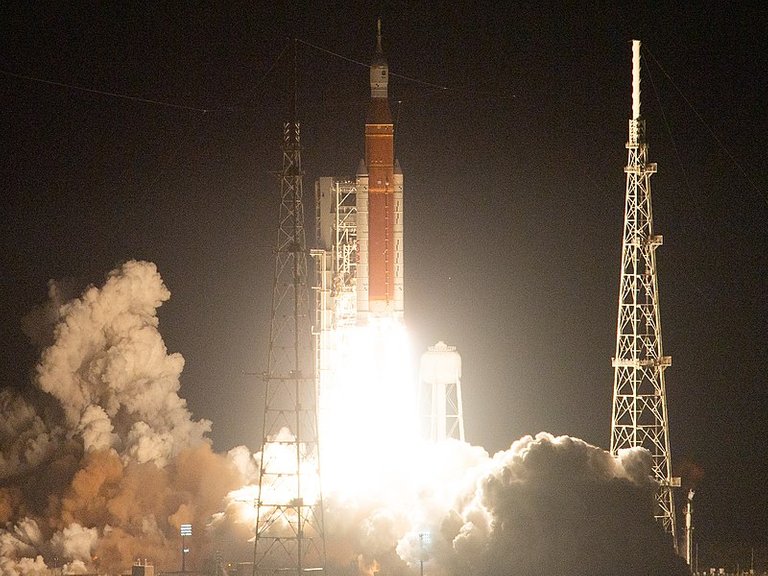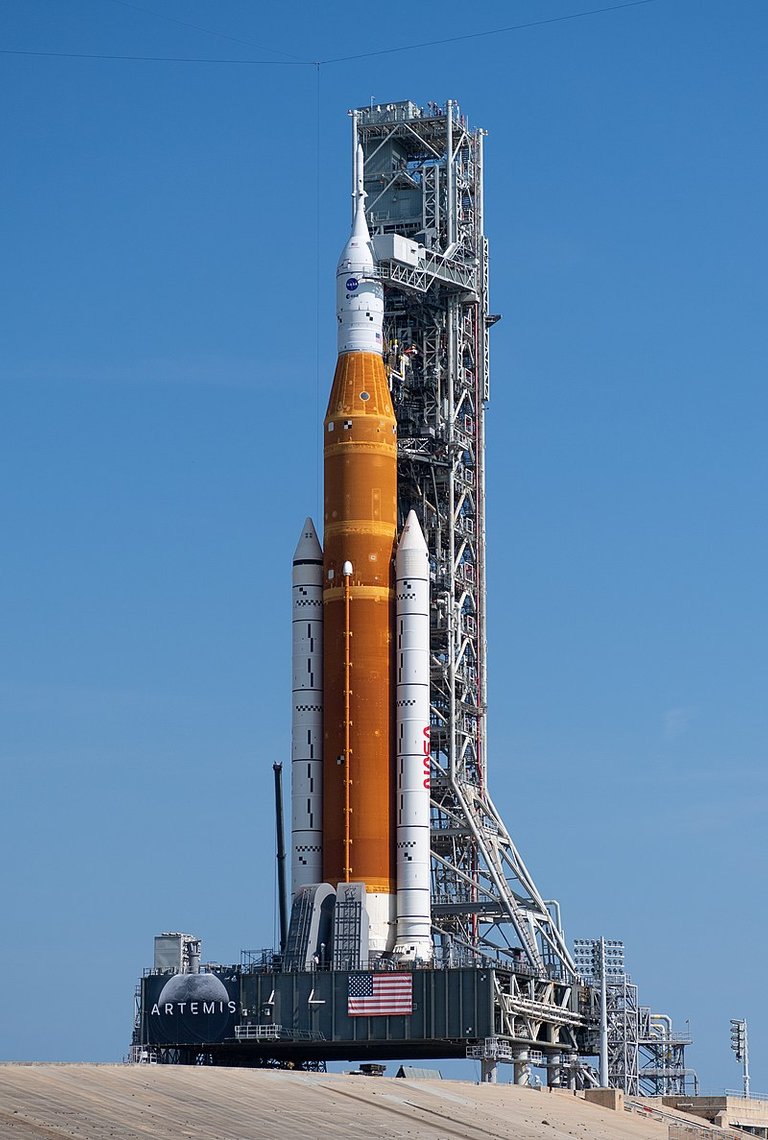Launch of Artemis 1. Back to the Moon!
After several attempts and a brief postponement, finally the first mission of NASA's program to return to the Moon after half a century is underway.

Launch of Artemis 1. Source: Wikipedia.org.
Let's remember that the last time a human walked on the Moon was during the Apollo 17 mission in December 1972, being the last mission of the Apollo program, the NASA program that achieved the feat of taking men to the Moon.
Now, today, November 16, at 1:47 a.m. (Florida time) Artemis 1 finally lifted off for the Moon, 43 minutes after the two-hour launch window opened, despite a small delay due to a liquid hydrogen leak during fuel tank filling that was resolved by NASA specialists.
Artemis I is the first mission of a program that plans to put man back on the Moon in the third mission, and this is an unmanned mission intended to test the flight and deep space exploration system of the new Orion spacecraft as well as to test the new Space Launch System (SLS).

During Artemis I, Orion will venture thousands of kilometers beyond the Moon. Source: Wikipedia.org.
The Orion spacecraft is the reusable spacecraft that will transport the future crew to their destination, while the Space Launch System (SLS) is NASA's new super-heavy expendable launch vehicle that replaces the Ares I and Ares V vehicles and is the largest and most powerful rocket ever built.
More specifically, this mission is intended to fly the Orion spacecraft on an unmanned circumlunar trajectory and remain in orbit for approximately six days, allowing controllers on Earth to evaluate the spacecraft's performance in deep space. Then, systems will be tested to ensure safe entry, descent, splashdown and recovery of the capsule. On the other hand, the SLS rocket designed for missions beyond Earth orbit, capable of carrying crew or cargo to the Moon or beyond with its 8.8 million pounds of thrust, will be launched.

The SLS with the Orion spacecraft on pad 39B prior to launch. Source: Wikipedia.org.
This is the first in a series of missions that not only seek to put a man and the first woman back on the Moon, but also lay the groundwork for deep space exploration, potentially serving as the basis for a future manned mission to Mars.
And today, after years of preparation and a couple of postponements due to fuel leaks in its planned launch between October and September, the whole set of systems has finally been put into orbit and is once again looking to make history. Not for less than that, nearly one hundred thousand people waited for hours in the vicinity of the Kennedy Space Center to witness this exciting first flight of Artemis 1.
The mission managers have been in charge of communicating in a press conference that all phases of the SLS vehicle were successfully separated and that the spacecraft's solar panels were properly deployed; and that the maneuver to accelerate the spacecraft to 36370 Km/h and propel the spacecraft to the Moon was also successfully performed. It has certainly been an exciting day for the entire NASA team, and it has been an incredible spectacle to see the SLS rocket liftoff.
Liftoff of Artemis I test flight to the Moon. Source: twitter of NASA's Kennedy Space Center.
Well friends, let's hope that this mission is successfully completed, as it depends on that Artemis 2 will carry a manned mission to orbit the Moon, so that later, perhaps in 2024, Artemis 3 will repeat the feat of Apollo 11, and our generation will become the next to witness a new manned mission to the Moon.
References
Wikipedia.org. Artemis 1
NASA.gov. Around the Moon with NASA’s First Launch of SLS with Orion
LEts see what they are going to find!

!1UP
We look forward to new discoveries!
We look forward to new discoveries!
You have received a 1UP from @gwajnberg!
@stem-curator, @vyb-curator, @pob-curator
And they will bring !PIZZA 🍕.
Learn more about our delegation service to earn daily rewards. Join the Cartel on Discord.
Thanks for your contribution to the STEMsocial community. Feel free to join us on discord to get to know the rest of us!
Please consider delegating to the @stemsocial account (85% of the curation rewards are returned).
You may also include @stemsocial as a beneficiary of the rewards of this post to get a stronger support.